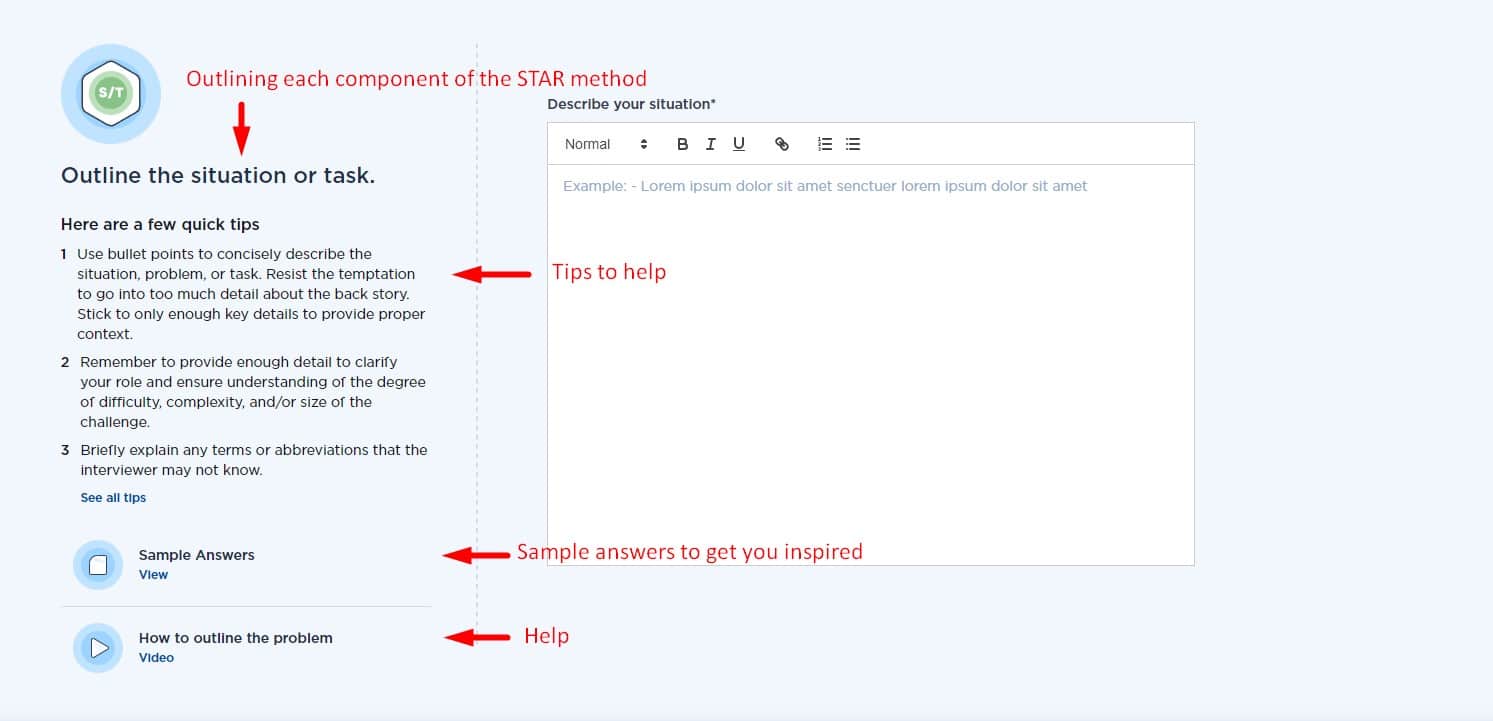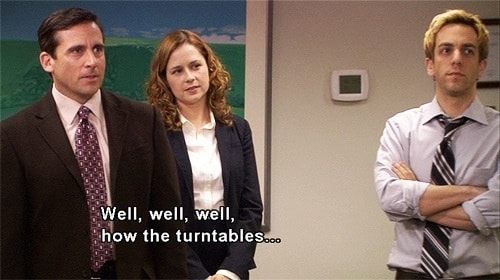As a customer service manager, you’re standing between the company and its most important stakeholders: customers.
Customer service manager is one of the key roles in any company. It’s an important factor that has a deep influence on the fate of a brand.
So you’ll need to prepare for this interview, have a perfect answer for all customer service manager interview questions, and prove you have what it takes to thrive in this demanding role.
In this blog post, we’ll share:
- What makes customer service management interviews unique
- General customer service interview questions
- Behavioral interview questions for customer service managers
- Sample answers and tips for answering general and behavioral questions
- Questions to ask your interviewer at the end of the interview
- Extra tips to ace your customer service manager interview
What Makes Customer Service Management Interviews Unique
As a customer service manager, your duties will encompass not only customer success but also:
- Strategic vision
- Leadership
- Process optimization
- Data analysis
- Hiring and firing
- Training and development
- Reporting
- Crisis management
- Budget management
Pretty serious, huh?
And the stakes are high, as key areas of business depend on customer service, like customer satisfaction, competitive advantage, product development, revenue, customer retention, and brand reputation.
We’re here to help you be sharp in your interview to prove you have what it takes for this role and that you can be trusted with a brand’s reputation.
Let’s walk you through the list of customer service manager interview questions and help you create answers for each.

Don’t waste days compiling overused interview techniques. Get original answers to every single question you could expect.
General Customer Service Manager Interview Questions and How to Answer Them
These are questions aimed to uncover more about your general experience and outlook on customer service.
How would you handle a difficult customer?
Tips for answering
- Stick to examples from your experience, not to hypothetical situations (whenever possible).
- Describe your actions step-by-step.
- Highlight skills like problem-solving, communication, and empathy.
Sample answer: General
Can you share an experience of de-escalating a potentially volatile customer situation?
Tips for answering
- Use the Situation, Task, Action, Result (STAR) method.
- Display active listening, empathy, and calmness.
- Highlight solutions, not blaming or avoidance.
Sample answer: Retail
If you want to learn more about how to answer tricky interview questions, sell yourself, and negotiate your offer, download our free course.
How do you motivate your team to provide excellent customer service?
Tips for answering
- Define what excellent customer service means and highlight the KPIs you focus on.
- Focus on leadership skills and display leading by example.
- Talk about your processes for setting expectations, reviewing performance, and rewarding accordingly.
Sample answer: Hospitality
How do you handle the performance evaluation process for your team members?
Tips for answering
- Define the main KPIs and describe why you chose to focus on them.
- Describe the evaluation process.
- Describe how you handle outstanding vs. poor performance.
Sample answer: B2C SaaS
What strategies do you use to ensure your team provides the highest level of customer service?
Tips for answering
- Talk about how you hire and train team members.
- Highlight your dedication to adaptation and innovation.
- Focus on key values you uphold in your team (customer-centric culture, clear standards and procedures, feedback as learning opportunities…).
Sample answer: Call center
How do you respond to feedback from customers about your team or the company’s service?
Tips for answering
- Display how feedback about the team helps you develop as a team and individuals.
- Talk about how feedback about the product or service helps you develop it further.
- Describe the procedure and communication between your team and other relevant teams working on customer feedback (product team, sales/marketing, accounts, housekeeping, guest services, IT…).
Sample answer: General
Can you describe your strategy for improving customer service within a company?
- List your ideas, be it constant process improvement, communication streamlining, gathering feedback, or similar.
- If possible, highlight what strategies you used in the past and provide achievements (quantifiable).
- Take into consideration the type of company and the industry and adjust your answer to suit them, emphasize that there’s not a one-size-fits-all approach.
Sample answer: General
✅ Pro tip: In addition to these questions, you might get asked some of the standard customer service interview questions, common for those that apply to Customer Service Representative roles. Here’s our full guide to get you covered: 13+ Customer Service Interview Questions and Sample Answers.
And here are detailed guides to help you answer some standard, common interview questions:
- Why Should We Hire You? Best Answer Examples
- “Why Do You Want to Work Here:” Example Answers + How-to
- “Why Did You Leave Your Last Job?” Top Reasons, Examples, How to Answer
- How to Answer “Tell Me About Yourself” (With Examples)
- “Describe Your Current Job Responsibilities:” Sample Answers
- What Are Your Strengths (and Weaknesses): Example Answers + Bonus Tips
- What Is Your Greatest Weakness? (Sample Answers + Tips)
- How to Answer: “Where Do You See Yourself in 5 Years?” (+ Examples)
- How to Answer “What Are Your Salary Expectations?” (+3 Templates)
Behavioral Interview Questions for Customer Service Managers and How to Answer Them
Behavioral interview questions are the main group of questions you’ll hear in any management level interview.
These questions ask for particular instances from your past in which you displayed specific skills and behaviors — and recruiters ask them to discover how you’ll perform in similar situations in the future.
Here’s a detailed review of behavioral interview questions and how to answer them:
The most effective way to answer them is by using the STAR method:
- Situation you found yourself in.
- Task that was ahead of you.
- Action you took to make it happen.
- Results that followed.
Prepare answers using this framework in advance, as it will allow you to anticipate them and have a ready, well-practiced, informative answer with confident delivery.
Our Answer Builder will help you think of appropriate situations you could turn into stories. You’ll get quick tips to help you craft an answer, along with sample answers that might help you get inspired.
Having built your answer, you’ll be ready for practice.

Describe a time when you implemented a creative solution to a customer problem.
Tips for answering
- Showcase your problem-solving skills.
- Emphasize your ability to think outside the box.
- Show what motivates you.
Sample answer: B2B SaaS
Tell me about an instance when you had to take a leadership initiative in a difficult situation.
Tips for answering
- Demonstrate your leadership style and skills.
- Ideally, choose an example where you saved the company some money or resolved an issue with the team you were leading.
- Talk about why you like leadership in the first place.
Sample answer: Retail
Tell me about a time when you introduced a change to the customer service process. What was the outcome?
Tips for answering
- Demonstrate your talent for spotting bottlenecks and making innovative changes to counter them.
- Prove you’re welcoming the changes and resisting the “This is how we’ve always done it” attitude.
- Include quantifiable results as the consequence of tweaking processes.
Sample answer: B2C SaaS
Describe a situation where you had to manage a conflict within your team.
Tips for answering
- Display your communication and interpersonal skills.
- Prove you’re able to constructively end a conflict.
- Say what you did to prevent the situation from happening again.
Sample answer: Hospitality
Share an instance where you had to make a difficult decision that benefited the customer, even if it meant compromising something else.
Tips for answering
- Choose a story that proves you’re an energetic problem-solver.
- Clarify and provide arguments for why you made certain decisions.
- Emphasize commitment to customers and how you balanced the short-term setback with the long-term benefits of customer satisfaction.
Sample answer: E-commerce
Tell me about a time when you turned a negative customer interaction into a positive one.
Tips for answering
- This is a general, broad question: use it to best display your past achievements, skills, and points of view.
- Include your unique view on customer service.
- If possible, quantify your achievements and highlight what you learned from the experience.
Sample answer
To see more behavioral questions and sample answers, all tailored to CS roles, see: Behavioral Interview Questions for Customer Service
Questions to Ask Your Interviewer After the Customer Service Management Interview
To quote Michael Scott: 
Seriously though, when you answer all customer service manager interview questions, the tables will turn and you’ll get the chance to ask the interviewer a few questions.
It’s important that you play it right and ask relevant, interesting questions, as that will show them that you understand the bigger picture, are curious, and researched the company and the industry before the interview.
It’ll also help you get to know the company and stand out from 90% of other candidates.
Interesting questions you could ask:
✅ How are you currently measuring customer service success? Are there any specific metrics or customer feedback processes that are particularly important?
✅ Can you tell me about a recent challenge the customer service team faced? How was it solved?
✅ Why is this position open and what did you like (or not like) that was done in the past?
✅What would you say are the key skills a successful Customer Service Manager should have?
✅ A year from now when you’re looking back on this hire, what would I have done to exceed every expectation?
✅ How is the company fostering a positive work environment in the Customer Service sector? Can you introduce me to the team’s dynamics and how collaboration is encouraged?
For more interesting questions you could ask, head here: 40+ Smart Questions to Ask at the End of Any Job Interview.
Extra Tips to Ace Your Customer Service Manager Interview
Research the company and the industry
Before the interview, you need to get as much context about the company and the industry it operates in as possible.
Research the company on Google, social media, Glassdoor, and forums to check the first-hand experience people had with them. Finding any relevant news or events related to the company will be useful, as you’ll be in touch with their recent activities.
This will help you realize what they possibly want from this role, gain the niche knowledge of the industry, address specific problems, needs, and possibilities, and adapt your approach.
You’ll also be able to ask interesting, relevant questions at the end of the interview and get a boost of confidence in general.
Tailor your answers to the job description
This will show them you’re precisely what they are looking for and that you have the exact experience and skills needed to thrive in that position and solve their problems.
You can do this by focusing on the job ad and tailor your answers to the job description.
Highlight transferable skills from past experience
This will prove that the skills you currently have can be successfully applied in the future in this new role — especially if you don’t have enough relevant experience. Highlighting transferable skills will help you to prove:
- You’re relevant to the role
- You can bring value to the employer
- You’re adaptable and thrive in new environments
- You have versatile experience
- You have long-term potential
Useful transferable skills for a Customer Service Manager to have:
✅ Experience working with people
✅ Conflict resolution
✅ Customer focus
✅ Feedback reception
✅ Quality control
✅ Motivation
✅ Negotiation
✅ Analytical thinking
✅ Problem-solving
Emphasize leadership experience
Customer service manager interview questions are all about your customer service and leadership skills.
Having superb leadership skills is important for this role, as you’ll be leading a team that is constantly in high-pressure situations.
To prove you’ve got what it takes, you need to emphasize your leadership skills and experience:
- Draw inspiration from real situations
- Emphasize what you learned from them
- Prepare answers in advance
- Quantify your achievements
- Have examples prepared for creating new strategies, updating procedures, hiring and developing people, letting people go, resolving a conflict between people, reporting to the top management
- Talk about how you foster a safe, friendly, collaborative environment in a team
- Bring up your take on leadership styles
- Mention major challenges you and your previous teams faced (and how you overcame them) as well as some major wins
By sharing compelling stories, you’ll leave a strong impression, prove you’re a top-notch professional, and increase your chances of landing a job.
If you don’t have leadership experience, focus on transferable skills that come in handy in leadership roles: communication, interpersonal skills, team building, an eye for spotting people’s strengths and weaknesses, and similar.
Recall a story from your personal life, educational background, or existing experience when you took the lead (resolved a conflict or showed leadership potential by going above and beyond).
Key Points
- As a Customer Service Manager, your duties will involve customer success, strategic vision, process improvement, people development, data analysis, crisis management, budgeting, and more.
- Recruiters will ask you interview questions for customer service managers in order to check if you have the relevant skills and experience to be trusted with the company’s reputation.
- Some of these questions will focus on customer service per se, but a lot will focus on your leadership skills too.
- Be as detailed as possible and base your answers on real situations from your past.
- Using the STAR method will help you create and practice your answers for confident delivery.
- To really nail the interview, research the company beforehand and tailor your answers to the job ad to prove you’ve got relevant experience.
- Practice! It’s the only way to ensure the quality of your answer and a strong delivery.
___________________________
Need a hand? There are 3 ways we can help you:
- Tired of interviewing and not landing the job? Discover actionable lessons and interview practice here (Rated with 4.9/5 by 1,000,000 users).
- Discover 9 ways to sell yourself in an interview.
- Learn about 30+ common job interview mistakes to avoid.
FAQs
What should I do in preparation for my CS management interview?
Think about your key customer service and leadership skills and the best way to combine them in your answers. Anticipate common customer service manager interview questions and prepare answers in advance using the STAR method. Research the company you’re applying for, it’ll give you niche knowledge and help you be specific in an interview.
What are the toughest interview questions for managerial positions in customer service?
Behavioral questions are probably the hardest part, especially if you haven’t prepared in advance and you don’t have the examples to base your story on. You can easily prepare by researching common behavioral questions and creating answers in advance using the STAR format. It won’t take up much of your time and you’ll come to the interview relaxed, knowing that you did your research and can’t be caught off-guard.
What makes customer service manager interviews different from interviews for non-managerial roles?
For non-managerial roles, you’ll be asked about your customer service skills only: customer focus, problem-solving, interpersonal skills, communication, negotiation, quick thinking, and similar. Interview questions for a customer service manager will assess all of those skills, plus leadership skills, your ability to spot bottlenecks and improve processes, motivate your team and help them develop, foster a positive work environment, develop strategies, and successfully report to the higher-ups.
What if I’m interviewing for my first managerial position in customer service and have little leadership experience?
Focus on your strong customer service skills. Provide qualitative and quantitative achievements. Provide examples of when you displayed leadership potential and went the extra mile to fix a problem. If applying from another industry, highlight your key transferable skills.
What to do if I only have customer service experience in a different industry?
Focus on transferable skills as they’ll prove that the experience you have can be applied in a new position too. Draw examples from particular situations in your past when you displayed key skills like problem-solving, active listening, communication, patience, empathy, platform knowledge, or de-escalating a high-pressure situation, and similar. Additionally, emphasize your ability to learn and adjust quickly, as this will prove to recruiters you’ll quickly adjust to the new industry.
